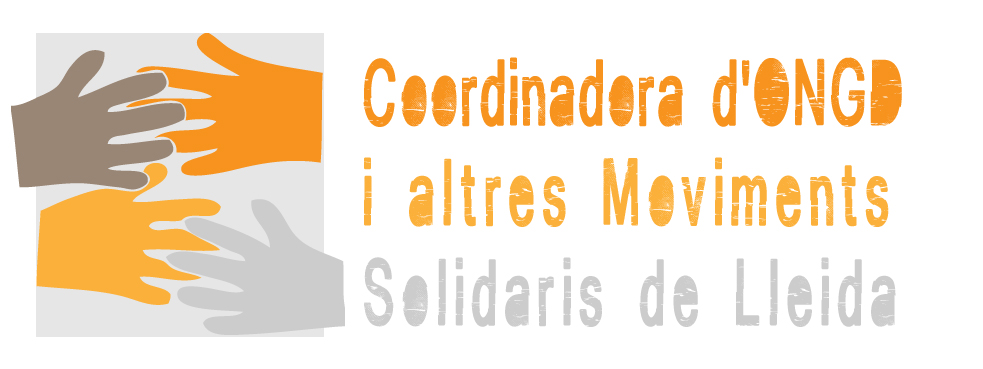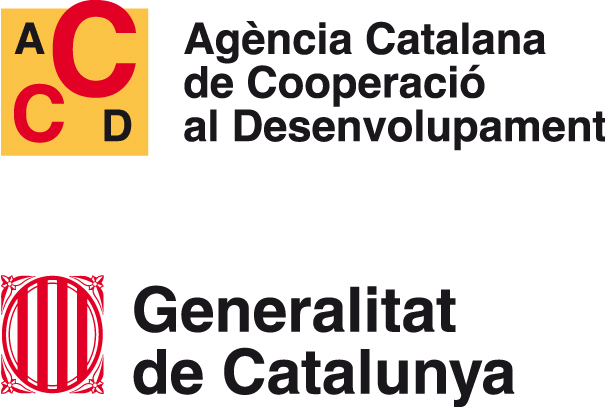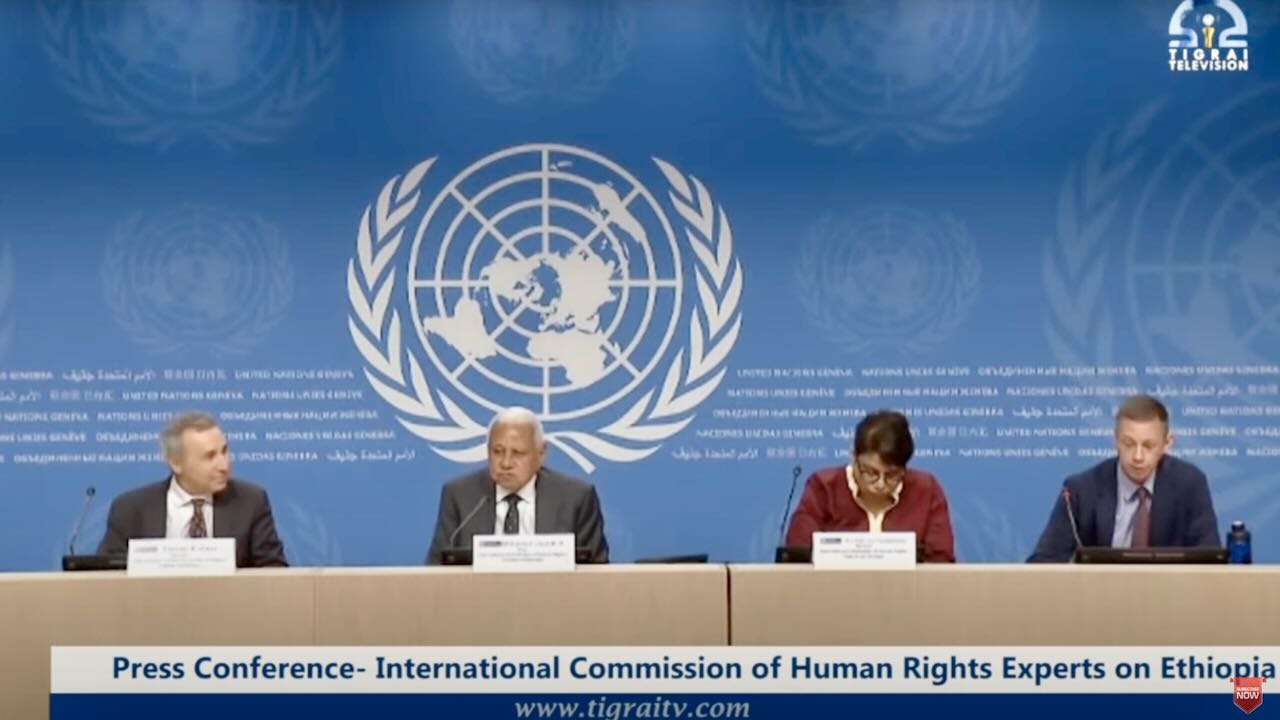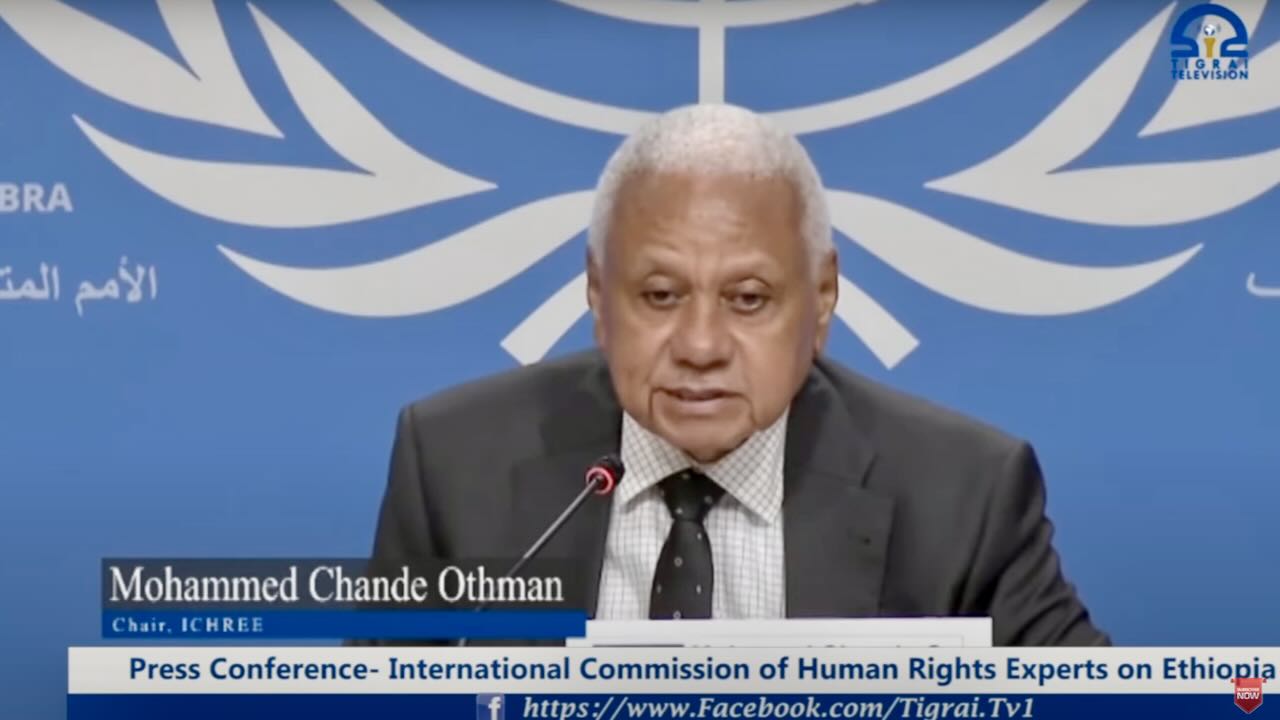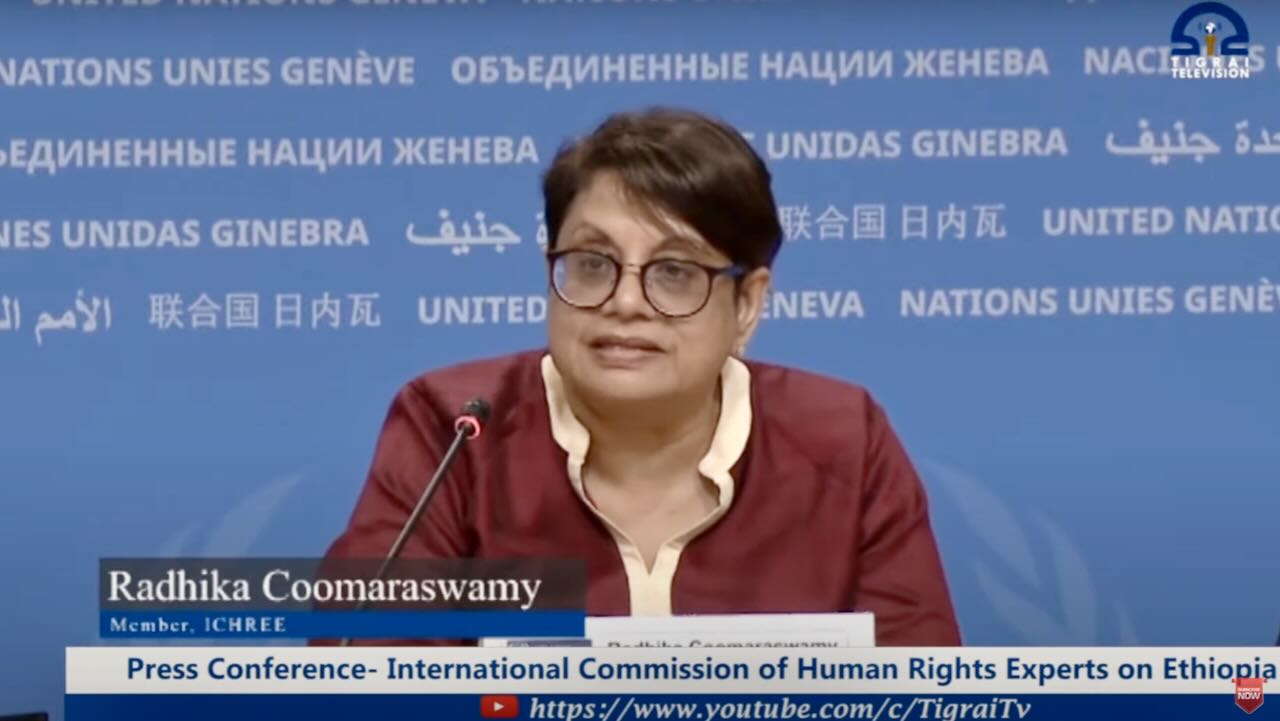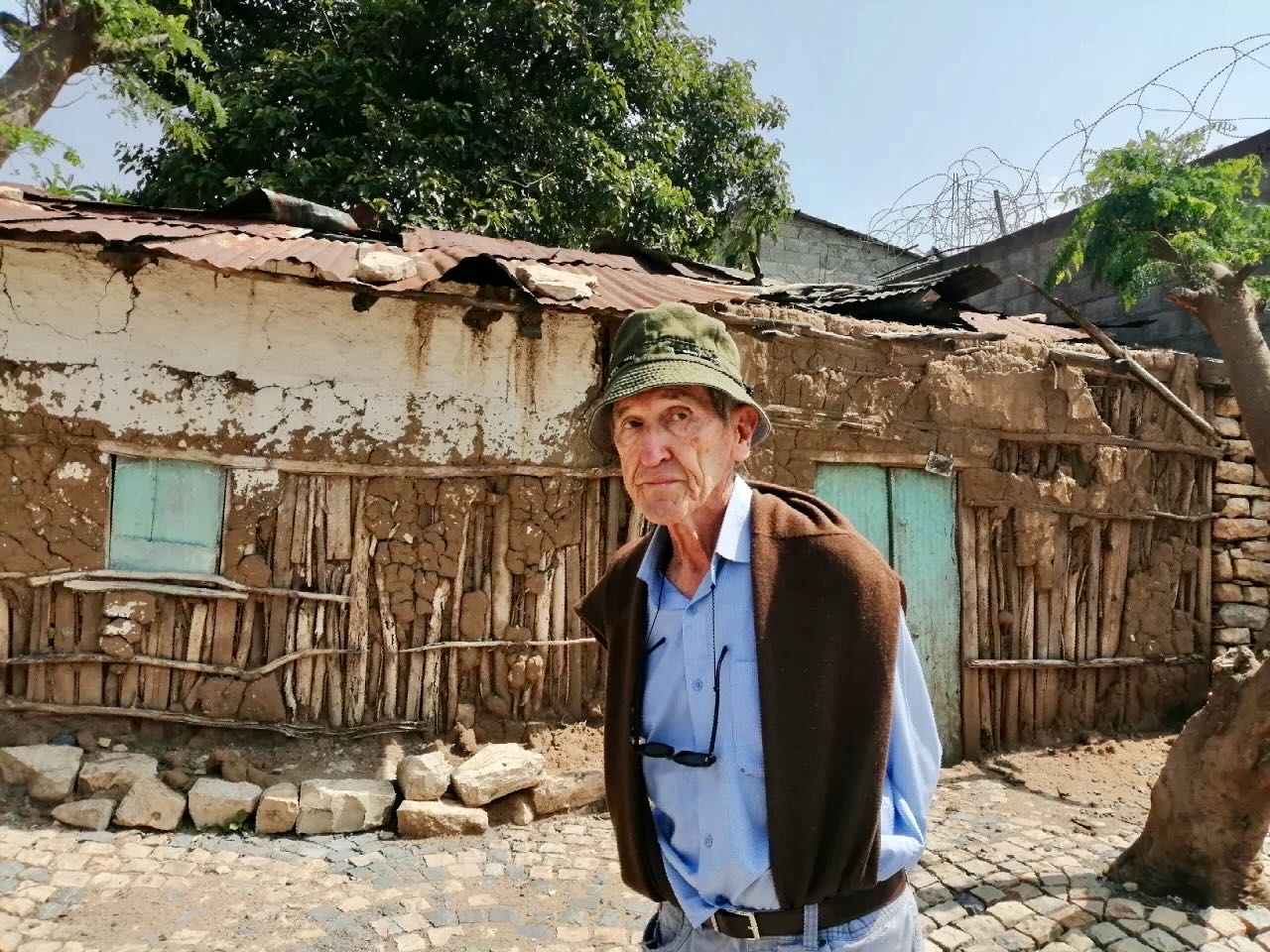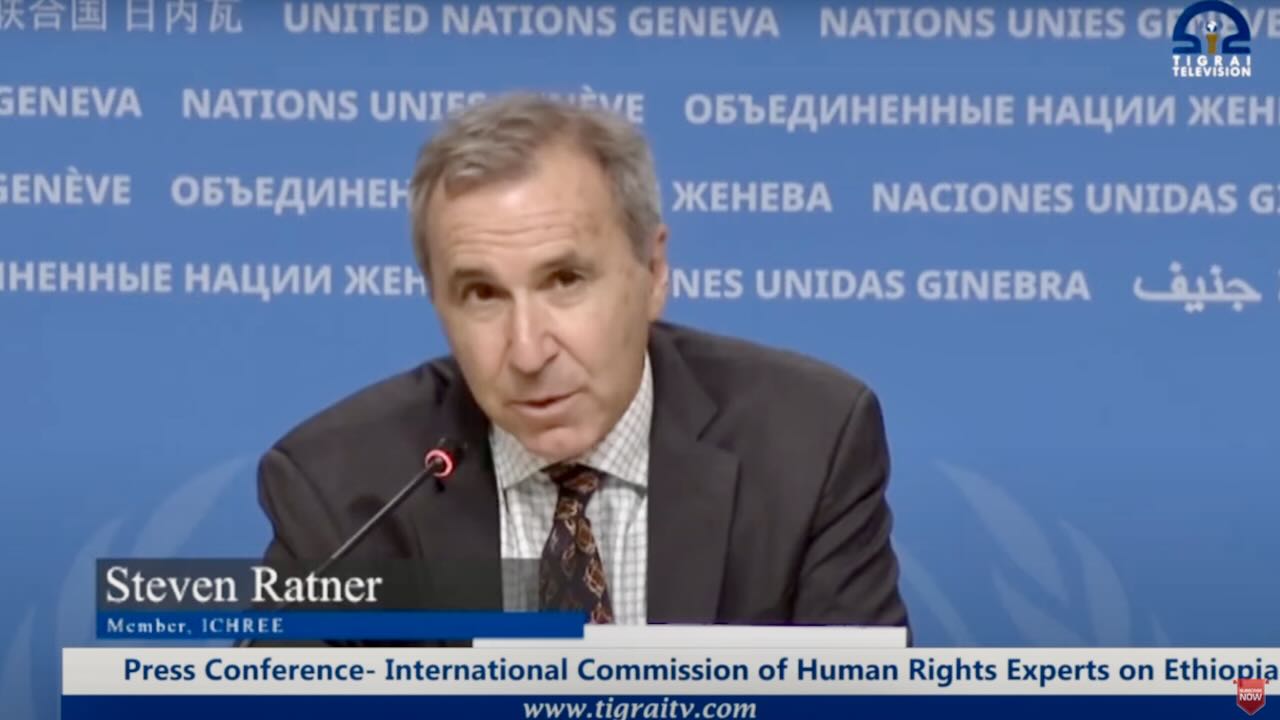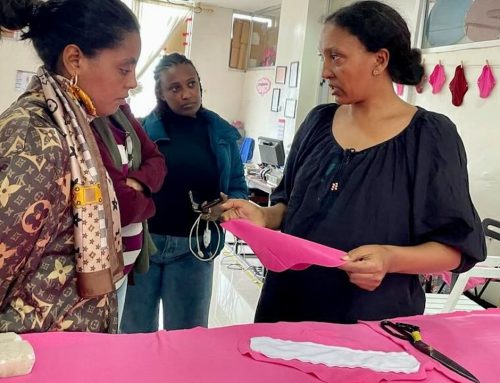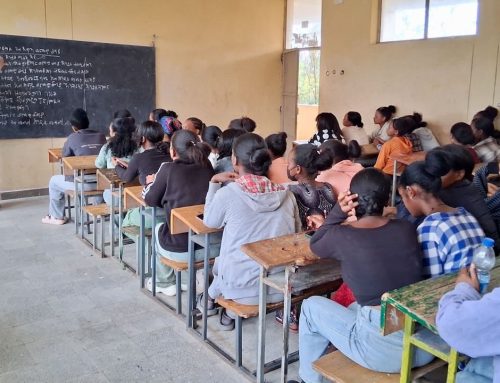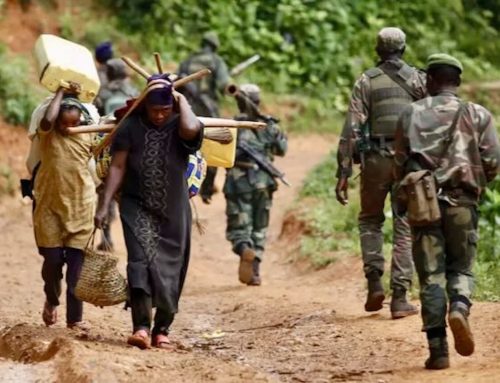Ángel Olaran speaks about the Human Rights Abuse Investigation Report in Ethiopia
The Commission of Human Rights Experts on Ethiopia presented the latest report to the United Nations Human Rights Council in mid-September, documenting the widespread atrocities committed by all parties in conflict since November 3, 2020. Ángel Olaran speaks about the human rights abuse investigation report in Ethiopia, warning that these abuses persist despite the peace agreement signed in Pretoria in November 2022.
The long-awaited report by the International Commission of Human Rights Experts on the situation in Ethiopia, according to Father Olaran, has faced several difficulties, including a lack of access to the Tigray region, limitations in interviews, and the sensitive issue of national sovereignty. The missionary anticipates the UN’s use of this report, and from his writing that you will find in this publication, he raises the question: who will dare to challenge national sovereignty to address human rights abuses in Ethiopia?
Report Allegations
The members of the Commission, Mohamed Chande Othman, President, Radhika Coomaraswamy and Steven Ratner, Commissioners, shared the report’s conclusions at a press conference on September 18th. They made the report public before officially presenting it to the Human Rights Council. If desired, you can watch the press conference: Press Conference – International Commission of Human Rights Expert on Ethiopia.
The report documented violations, including mass killings, rapes, food confiscation, school and medical facility destruction, forced displacement, and arbitrary detentions. In Ethiopia, serious violations continue to occur despite the peace agreement. This was reported in the report by United Nations human rights experts, warning that “hostilities in Ethiopia are now nationwide, with a significant increase in violations, especially in the Amhara region, but also in Oromia and elsewhere.” It is also added that “the risk to the state, regional stability, and the enjoyment of human rights in East Africa should not be underestimated.”
“Although the signing of the agreement has largely silenced the guns, it has not resolved the conflict in the northern part of the country, especially in Tigray, nor has it led to overall peace. The situation in Ethiopia remains extremely serious,” said the President of the Commission, Mohamed Chande Othman, during the report’s presentation.
The 21-page report confirmed that Eritrean troops and Amhara militia members continue to commit serious violations in Tigray, including systematic rape and sexual violence against women and girls, in violation of the federal government’s human rights and territorial integrity commitments.
“We cannot underestimate the seriousness of the violations committed in Ethiopia by all parties during the recent conflict. It is especially concerning that some of these crimes continue to occur, particularly rape and sexual violence against women and girls by Eritrean forces in Tigray,” said Commissioner Radhika Coomaraswamy. “The continued presence of Eritrean troops in Ethiopia is a clear indication not only of a deep-rooted policy of impunity but also of the ongoing support and tolerance of such violations by the federal government,” she added, denouncing that the atrocities have devastated communities and severely eroded social fabric.
“Whole families have been killed, relatives have been forced to witness terrible crimes against their loved ones, while entire communities have been displaced or driven from their homes; many are too frightened to return, others cannot. The trauma, both individual and collective, is likely to persist for generations. The need for a credible, inclusive, and meaningful process of truth, justice, reconciliation, and healing has never been so urgent,” Coomaraswamy added.
The Commission also reported incidents of arrests, detentions, and torture of civilians by government forces in Oromia, and is already receiving numerous credible reports of violations against civilians in the Amhara region after the declaration of a state of emergency last August.
Image of Ángel Olaran in Wukro (2022)
Written by Ángel Olaran on the Report
The Basque missionary writes from Wukro on October 8, 2023, about the report of the International Commission of Human Rights Experts on Ethiopia:
The Commission began its work in November 2022, days after the peace was signed in Pretoria on the 2nd. By then, the Tigrayan army was already, and still is, outside the frontlines.
I will only refer to what happened in Tigray in this report.
On April 14, 2021, UN Secretary-General Mr. Antonio Guterres, from his office communicated and condemned the horrors of the sexual violations being committed in Tigray. According to him, something unheard of given its cruelty. His commitment to human suffering in the face of the atrocities being committed against women, as well as his social, political, or other responsibilities in this regard, should have ended there. His statement must still be archived, or it ended up in one of his office trash bins.
The same Secretary-General, earlier this year, visited the Ethiopian Prime Minister (PM) in Addis Ababa, and once the visit was over, he expressed his satisfaction with the reception he received and his confidence in the PM’s goodwill in his duty to defend peace and justice in Tigray. Did he request permission from the PM to visit Tigray? Possibly assured by the warm reception, he may not have even considered the need for the trip. Did he express his repulsion at the ongoing cruelty of sexual abuse since his first statement?
High-ranking officials from the US State Department have made repeated visits. All of them began and ended in Addis Ababa, with promises of economic sanctions if the situation in Tigray did not improve. None of them considered it necessary to go to Tigray. These visits were complemented by leaders of the African Union, the EU, and others.
At that time, news, including videos, of what was happening in Tigray was common outside their borders. Wouldn’t it have been the appropriate time for international commissions?
One of the obligations that these international authorities considered necessary was for the parties involved – the federal government and the Tigray government – to engage in dialogue, something that was repeated like a refrain. And here is where one runs into a wall: the Tigrayan authorities, as well as the population that supported them, were declared a terrorist junta by the Ethiopian Parliament. Apparently, there is no constitution in the world that allows for dialogue with terrorists. This detail must have escaped Western leaders. In Ethiopian history, from the end of May 1991 until the start of hostilities, there has never been a reported act of terrorism in Tigray. The Constitution dates to 1993.
In the mentioned commission’s report, there is little that is not common knowledge locally. What is new in Tigray is that their soldiers, during their time in Amhara territory, have been involved in the same sexual cruelties.
It gives the impression that reports from such commissions, external to the mandate of the Ethiopian PM, no matter how exhaustive and professional they may be, do not correspond to what his generals, whom he respects and admires, report to him.
In this regard, Article 11-1) of the Pretoria agreement provides for the creation of a Joint Commission represented by the federal and Tigrayan governments, a representative of the Intergovernmental Authority on Development (IGAD) and chaired by the African Union. The Commission will be assisted by a team of African experts.
As of today, there is no evidence of its existence inside Tigray.
The mentioned International Commission has only fulfilled the first part of its mandate. During this first part, they have encountered many limitations that have conditioned their report. They have not been able to enter Tigray. They have not been able to meet with the population or with political or military authorities. Nor with the soldiers, themselves.
It has been through interviews conducted outside of Ethiopia, with the certainty, according to the experts, of the veracity and honesty of all the interviewees, “those who had earned their total trust” – I would dare to question the veracity of this statement -.
If, in this second part of their mandate, they fail to interview the aforementioned segments of society, the Commission President stated that the report would have no validity before international institutions.
If the international authority in Pretoria, with all the support of all international institutions, and its moral and political weight, has not managed to get the federal government to comply with a significant number of the principles agreed upon in Pretoria, applauded by the whole world, it will be difficult for this Commission of Experts, sent by the UN Secretary-General, to secure the freedom of movement and contacts necessary for the reliability that their work requires from the federal Parliament. This is another of those times when I would be glad to be wrong.
In the second part of their work, even assuming that freedom of movement and contact is appropriate, and the Commission accepts the reliability of the report, there remains the question of how the UN will make use of it. There is at least one report of this kind that has been delivered and ignored.
I imagine that politicians who have made politics their way of life must have a small altar erected in their offices to venerate the one who coined NATIONAL SOVEREIGNTY.
Who dares to challenge it?
Ángel
To respond to the report of the Commission
The report pointed out that the Ethiopian government has not effectively prevented or investigated violations and, instead, has initiated a process of imperfect transitional justice in which victims are ignored. Earlier this year, the federal government published the draft “Ethiopia’s Political Options for Transitional Justice,” initiating a series of consultations on a possible national transitional justice process. However, the Commission found that the process was rushed to meet an arbitrary deadline set by the government and did not adequately involve victims in many areas, including Ethiopian refugees living in neighboring countries.
“Transitional justice aims to help countries address past atrocities, but our commitment to hundreds of victims, their families, and representatives indicates a complete lack of confidence in the capacity or willingness of Ethiopian state institutions to carry out a credible process, especially as state officials and entities are polarized and lack independence,” said Commissioner Steven Ratner.
The Commission’s report warns of the continued presence of most of the indicators and triggering factors contained in the United Nations framework for heinous crimes and highlights the risk of further large-scale atrocities, expressing deep concern that many risk factors characteristic of future heinous crimes continue to be present in Ethiopia.
Regarding the Commission’s research and its team, the deadline for this report dates to the beginning of the mandate on November 3, 2020, and the research formally ended around June 27 of this year so that they could then proceed to draft the report while continuing to collect information after that period. Information, especially regarding ongoing patterns of past atrocities, but also new information as it pertains to events that occurred up to the point when the report began to be drafted. Thus, it is comprehensive with a backward and forward-looking perspective.
With the collaboration of
